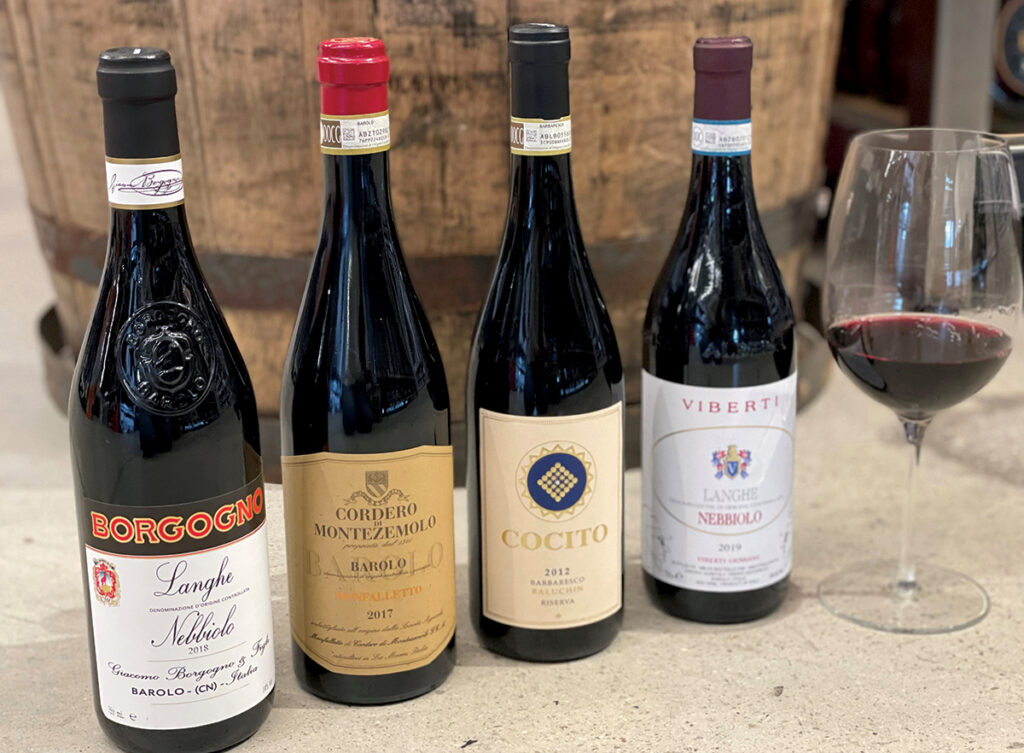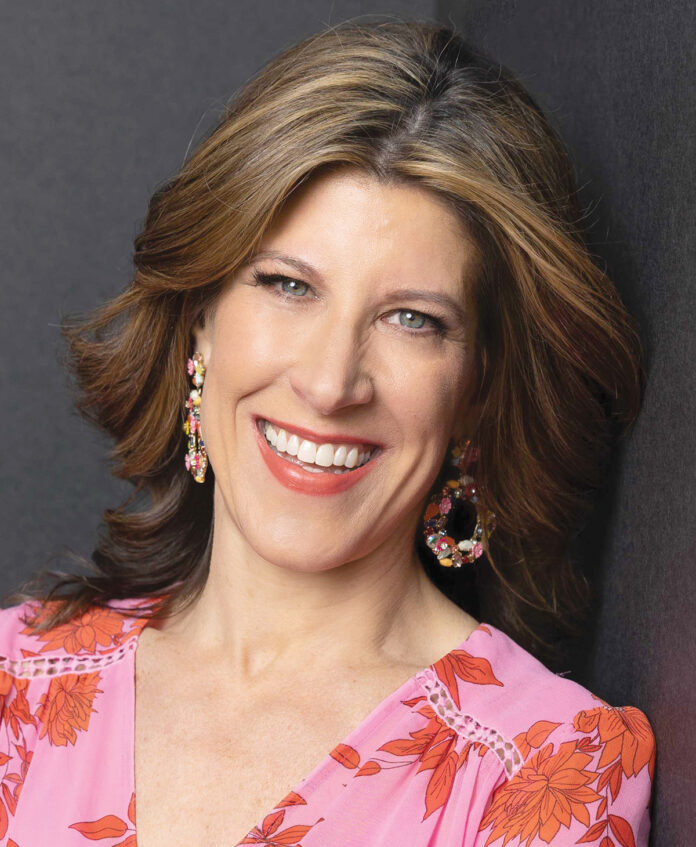My work in the wine industry during the last 17 years has given me the ability to travel to Italy. Long, winding roads flanked by an endless sea of vineyards and farms are common in Italy’s countryside. I have reveled in this bucolic scenery many times, including last month when I visited Piedmont, Italy, a lesser-known wine region. I like to venture off the beaten track, and Piedmont is still tucked away from the crowds.
Piedmont is home to the ancient Italian grape nebbiolo that is grown in Piedmont’s Langhe region, and the top-notch wine areas of Barbaresco and Barolo.
The name nebbiolo comes from the word “nebbia,” which means fog in Italian. Nebbiolo produces a full-bodied and slightly tannic wine, particularly when it is young. Do not let its lighter color fool you. It also has great aging potential – particularly the Barbaresco and Barolo wines that garner the highest price tags. So if you prefer a powerful red, then nebbiolo can be one of your go-tos.
Nebbiolo shows a varied flavor profile of anise, plum, coffee, black cherry and often leather that coats the mouth and teeth. Because of the wine’s tannic nature, you should pair them with foods that have a high fat and protein content – I recommend Italian cuisine featuring Bolognese sauce, wild boar, rabbit and filets of beef.
[caption id="attachment_432964" align="aligncenter" width="1024"]

REPRESENTING: Wines from the Piedmont region of Italy, home to the nebbiolo grape.
COURTESY JESSICA NORRIS GRANATIERO[/caption]
Here are some picks for great nebbiolo from the areas of Langhe, Barbaresco and Barolo that are all boutique family-owned properties.
Viberti Langhe Nebbiolo – The Viberti estate was born in the 1920s and produces many different red selections, including the prized Langhe nebbiolo. The primary fruit of strawberry and cherry come together beautifully with additional floral notes. They are well integrated with vanilla and coconut notes from one year’s aging in large wooden vats. The wine is then aged an additional year in stainless steel tanks. It is an easy-sipping wine with soft tannins and great drinkability. It should be consumed young, within five years. (Under $30)
Borgogno Langhe Nebbiolo – Borgogno is one of the oldest wine estates in the Barolo village, dating back to the 1760s. It is now owned by the Farinetti family that got its fame from Eataly, a food and wine market that started in Turin, Italy, and migrated to the U.S. Borgogno’s nebbiolo is from the Langhe area and uses the same grapes that are used in Barolo. So this rendition is quite a value. It has aromas that you might expect from Barolo – classic rose petal and tar – while the taste profile is of black cherry, raspberry and herbal notes. Fresh and vibrant, this is a great selection to enjoy while the wine is young. (Under $40)
Cocito Barbaresco Riserva Baluchin – Made from 100% nebbiolo, this selection comes from a tiny plot of land. Baluchin is the word for “star” in Piedmont dialect and refers to the vineyard’s ideal position for star gazing. The wine has bright aromas and flavors of blueberries, plums and graphite. It is always aged longer and released later so the mouthfeel gives us a silky, soft feeling. Aged for about two years in small French oak barrels, it displays a great focused wine that can last for 10 or more years. ($70-$80)
Cordero Montezemolo Barolo – In the family’s 19th generation, Cordero di Montezemolo is located in the small village of La Morra. Its Barolo is a blend of different nebbiolo grapes that are then aged in a mix of Slovenian and French oak barrels for 18 to 24 months. The result is an intense garnet color with a round, full mouthfeel of dark cherry, blackberry, cocoa and plum notes, intertwined with a hint of vanilla and hazelnut. A top selection that is approachable at a young age. (Between $55-$60)
Jessica Granatiero is the founder of The Savory Grape, a wine, beer and spirits shop in East Greenwich. She can be reached through her website, www.jessicagranatiero.com.













